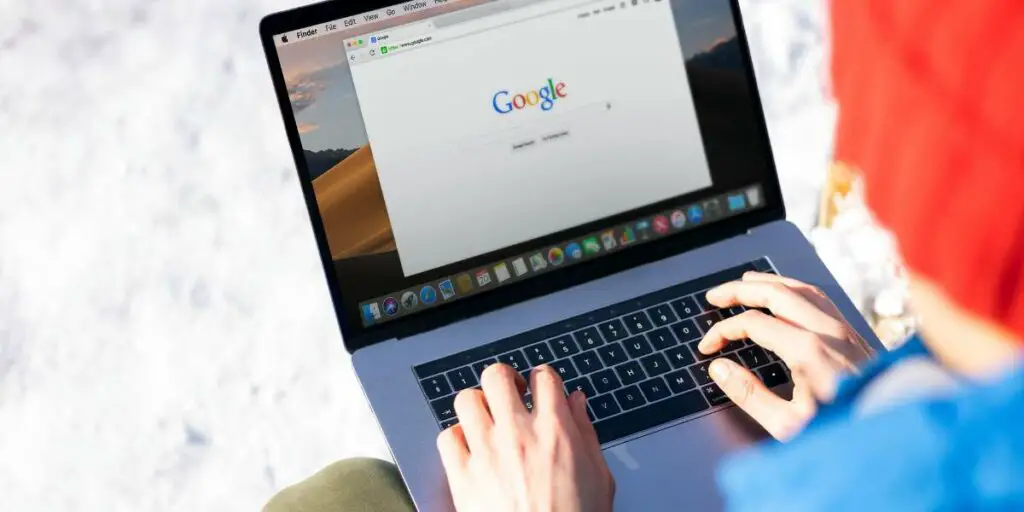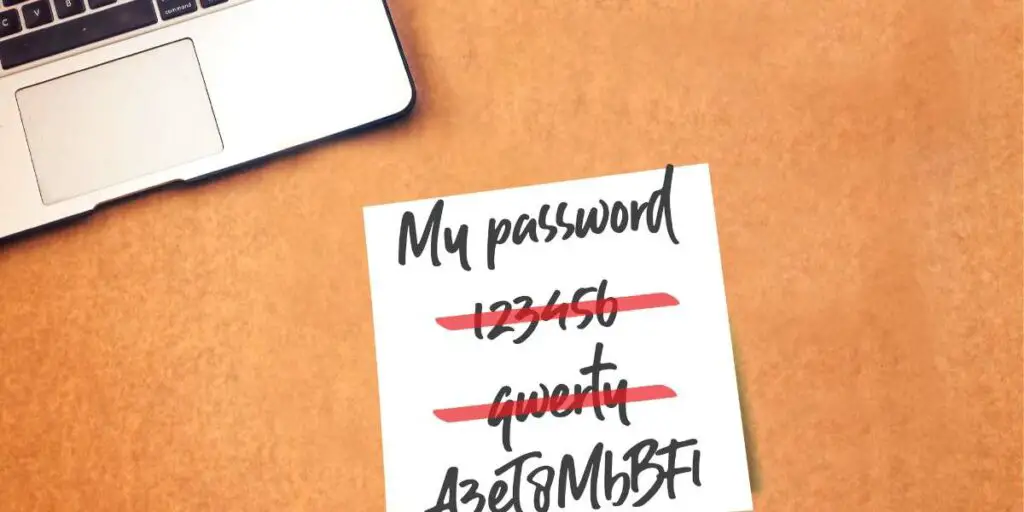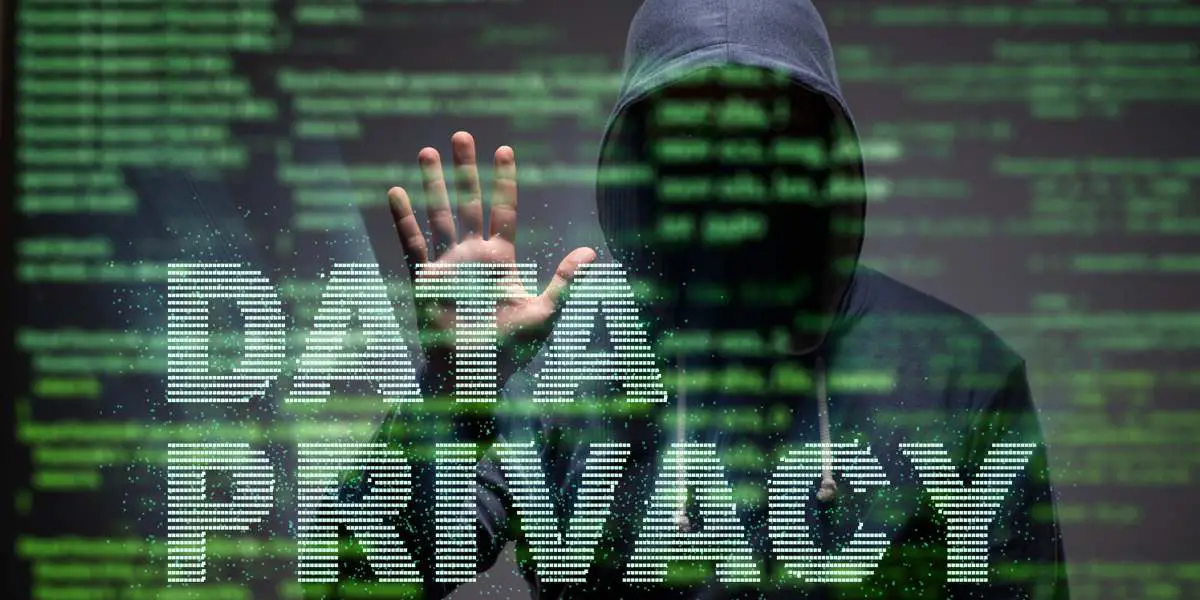Have you ever thought about your online privacy? Do you know what information is collected about you when using a website? Who has access to that information? How can you protect that information?
We live in an age where we constantly put our information into the world, and quite a few people likely know too much about you. If you’re concerned about online privacy, this guide will show you how to regain your online privacy with these 10 easy tips.
These steps are designed to help you to protect both yourself and your personal information from prying eyes. In addition, it will keep you safe from hackers who want nothing more than to take advantage of your data and use it for malicious purposes like identity theft.
Here’s how to regain your online privacy in no time at all.
Do you have a particular question about improving your online data privacy? Then use the table of contents below to jump to the most relevant section. And you can always go back by clicking on the black arrow in the right bottom corner of the page. Also, please note that some of the links in this article may be affiliate links. For more details, check the Disclosure section at the bottom of the page.
Here's what we'll cover:
- Stop sharing personal information on social media
- Use encryption software on your computer and mobile device
- Use a VPN
- Delete any account you no longer use
- Stop search engines from indexing your profile
- Check what shows up on a google image search
- Turn off location tracking on devices
- Stop relying on cookies for authentication
- Be mindful about what you post online
- Use Different Passwords On Each Site/App
- Bottom Line
One of the best ways to regain your privacy online is to stop sharing personal information on social media.
Social media websites are used by many people and are a great way to keep up with family, friends, and colleagues. They can also provide an easy way to share your thoughts with the world.
However, when you post on these sites, you should be mindful of what you share publicly because it may not be as private as you think.

Use encryption software on your computer and mobile device
One of the simplest ways to regain online privacy is by using encryption software on your computer and mobile device. Encryption software encodes information so it can’t be read even if it is intercepted.
You should also encrypt any wireless networks you connect to. This will make it very difficult for a hacker to access sensitive data from your laptop’s hard drive when it’s not connected to an encrypted network.

Use a VPN
Another tip for regaining privacy online is to use a VPN service to hide what websites you are visiting and what apps you are using. VPNs are an excellent way to regain online privacy. They can help you combat government surveillance and bypass geo-restrictions. The best VPNs will even encrypt your data.
How can using a VPN help to regain your online privacy? It encrypts your data and masks your IP address so that ISPs cannot see what sites you visit or how much bandwidth you consume.
A good VPN also prevents any website from knowing who you are and your location. That’s why some people use it while browsing public Wi-Fi networks at airports or coffee shops.

Delete any account you no longer use
There are a lot of social media platforms out there, and it’s easy to forget about the accounts you used to have. Deleting these accounts will help remove your online history and regain your privacy.
To delete an account, go to the settings page and follow the instructions for deletion or deactivation.
Stop search engines from indexing your profile
One of the best ways to regain your privacy is by ensuring that your profile isn’t searchable by search engines. It’s important to understand that this doesn’t mean you will be invisible online. Still, you will make it significantly harder for those trying to find personal information about you.
You can do this by updating your privacy settings on the social networks where you are logged in and deleting any old profiles or accounts that may still be indexed.
Check what shows up on a google image search
Checking what shows up on a Google Image Search can help if you are trying to regain your privacy as well.
Take a look at your name and the first 5 images. Do any of them have any identifying information? If so, consider contacting the image owner and asking them if they would be willing to take it down or blur it out.

Turn off location tracking on devices
Turning off location tracking on your devices can help you regain online privacy and control of your personal data.
For example, when you turn off location tracking on your device, it stops revealing your physical location to apps or websites that ask for it. However, it also means that no one will know where you are without your consent.
It also limits how companies collect information about where you go, what routes you take, and how often you travel there, which helps them sell this information to third parties.
By turning off location tracking on your phone and laptop, even if someone got access to them, they wouldn’t be able to see where you have been or are going.
One way you can regain online privacy is by not relying on cookies for authentication. Cookies are not encrypted and can be read by anyone who has access to your computer, which could expose your data.
To avoid this, you can use a password manager to generate unique passwords for you and store them in an encrypted vault. You can also install browser extensions that block third-party trackers from collecting data about your online activity.

Be mindful about what you post online
Be mindful about what you post on social media profiles or blogs because anything posted online is permanent and will exist indefinitely.
Social media is a public forum, and your posts can have far-reaching consequences. For example, suppose you post about the fact that you’re traveling for work and going on vacation. In that case, thieves could use this information to target your home while you are away.
Being mindful about what you post will help protect your privacy so that only those who need access know where you are or what you’re doing at any given time. For example, only accept some friend requests you receive, and be assertive. If your profile is private, only people you’ve verified services with Nuwber can see it.
Unplug from social networks; the more we use these platforms, the more information we give away.
Use Different Passwords On Each Site/App

There are many ways you can regain your privacy online. One is using different passwords for each site or app requiring login information.
You can use a password manager like LastPass or 1Password, or you can just take advantage of the autofill options on your phone. Whatever you choose, make sure you don’t use a password that’s easy to guess and has been used elsewhere online.
If you need help with an original password, try these tips: use all numbers (1-9), use words found on an elementary school spelling list, or make something up completely.
Bottom Line
We know that regaining your online privacy is no small feat, but it doesn’t have to be overwhelming.
With these 10 easy tips, you will take back your digital life (at least some part of it). Implement them and regain the peace of mind that comes with knowing that only those who need to see your information will be able to see it.
Credits: Thanks for the photo to Canva.

At ipoki.com we only mention the products that we’ve researched and considered worthy. But it’s important to mention that we are a participant of several affiliate programs, including Amazon Services LLC Associates Program, an affiliate advertising program designed to provide a mean for us to earn fees by linking to Amazon.com and affiliated sites. As an Amazon Associate ipoki.com earns from qualifying purchases.


